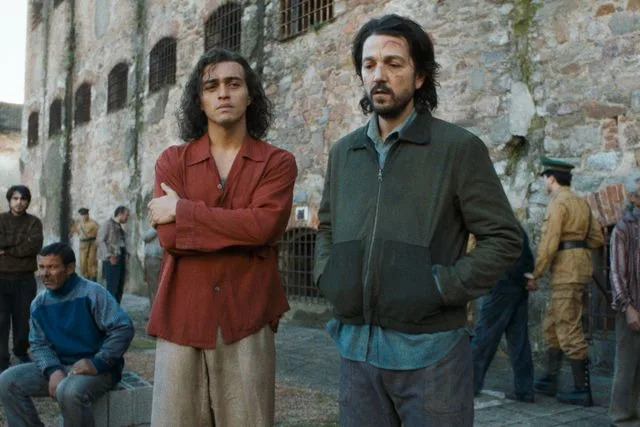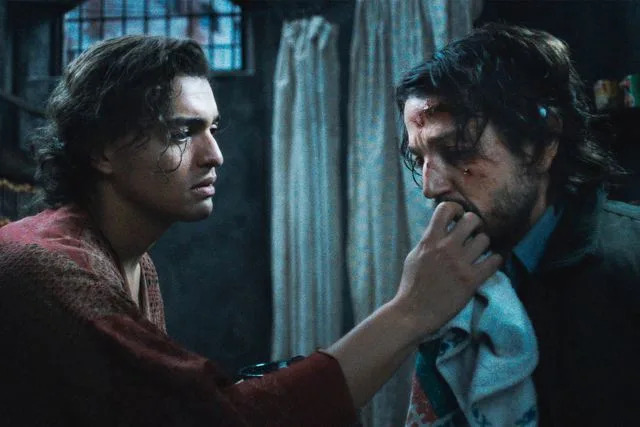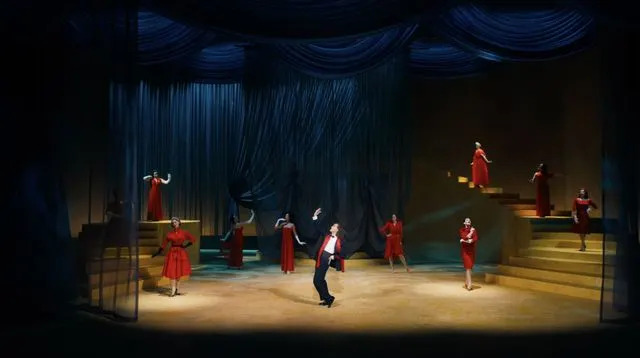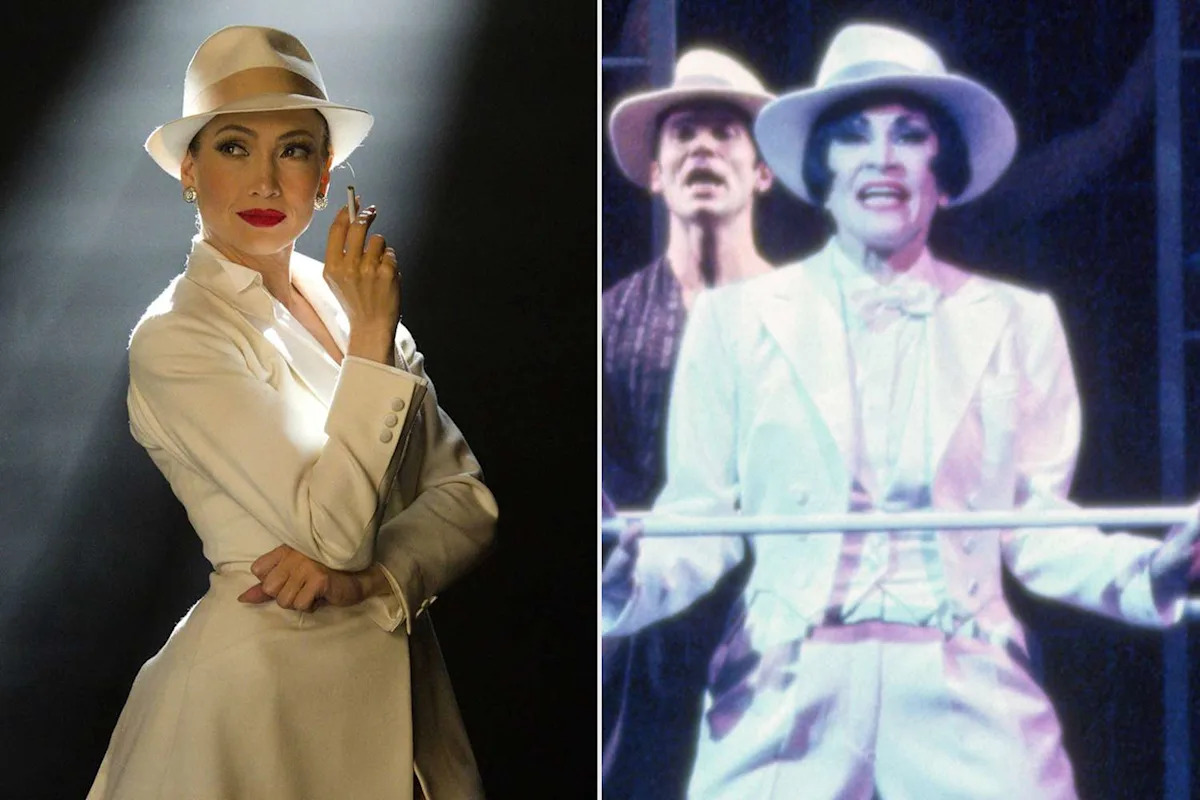Key Points
Kiss of the Spider Woman, now in theaters, changes quite a lot from its Broadway stage version, but the biggest change comes in the film’s ending.
Stars Diego Luna and Tonatiuh take us through the reasons for that change — and why it makes the film’s message really hit home.
Tonatiuh also points to the necessity of the film’s themes at this time in our history.
This article contains spoilers about Kiss of the Spider Woman.
Passionate romances are only in the movies…at least for men like Luis Molina (Tonatiuh).
In a bit of dramatic irony, that’s all too true for the film adaptation of Kiss of the Spider Woman, which hit theaters Oct. 10.
Adapted from the 1993 Broadway musical of the same name (itself based on the 1976 novel by Manuel Puig), the film follows two prisoners in 1980s Argentina: window dresser Molina and revolutionary Valentin Arregui (Diego Luna). Initially mistrustful of each other, the two men bond over Molina’s stories about movie star Ingrid Luna (Jennifer Lopez) and her starring role in the eponymous film-within-a-film.

Courtesy of Roadside Attractions
Tonatiuh and Diego Luna in ‘Kiss of the Spider Woman’
As the two men do more and more to protect each other and their secrets, they fall for each other, eventually making love and forging a true and passionate bond. Molina is released from prison, but, having been converted to the cause by Valentin, he takes on risky assignments, helping those rebelling against the dictator deliver messages. On one errand, he is caught, and when he tries to run, he’s gunned down by police.
Get your daily dose of entertainment news, celebrity updates, and what to watch with our EW Dispatch newsletter.
While his final moments still unspool from a film reel in the number “Only in the Movies,” writer-director Bill Condon also adds an epilogue that finds Valentin released from prison after the fall of the dictatorship. He looks skyward and, still sporting a scarf that Molina gave him, kisses it and dedicates this moment to “his love.”
It’s a far more optimistic and humanist conclusion than the one in the 1993 stage musical. There, Valentin has sex with Molina as a means of persuading him to make an important phone call. At the end of the day, their relationship is based more on manipulation and need than on love or compassion.
In the musical’s final moments, Molina confesses his love for Valentin right before the warden shoots him, and he dies in Valentin’s arms.
Tonatiuh and Luna see this change as essential to the film’s chief message. “[Bill] had that revolutionary energy,” Luna says of their director. “He found a creative and beautiful way to get away with the story he wanted to tell.”

Courtesy of Sundance Institute
Tonatiuh and Diego Luna in ‘Kiss of the Spider Woman’
“Film is about someone needing to connect with an audience because of something there is to say,” Luna adds. “This is a love story. This is a story about love being behind everything that moves us. If you want to make a revolution, if you want to change things, love has to be behind it. And that is what this film is all about.”
Tonatiuh also sees the change as a reflection of evolving social mores in the 30-plus years since the musical was on Broadway. “For that time period, what they were doing was revolutionary,” he says. “But there had to almost be a bit of a compromise to make it commercially viable.”

Lionsgate
Tonatiuh in “Only in the Movies” number in ‘Kiss of the Spider Woman’
“The messaging is that once you take away all the facades and all of the things that supposedly separate us, and see each other, you’re actually able to connect,” the actor continues. “You’re able to fall in love. Vulnerability is the price we pay in order to fall in love.”
Tonatiuh finds that concept even more moving and meaningful now than when they shot the film. “It really resonates in a time where some of the most marginalized people in the world are being deemed terrorists,” he concludes. “We are saying, ‘Just take a second to look at another human being and witness them and see that we are the same.'”
Read the original article on Entertainment Weekly

